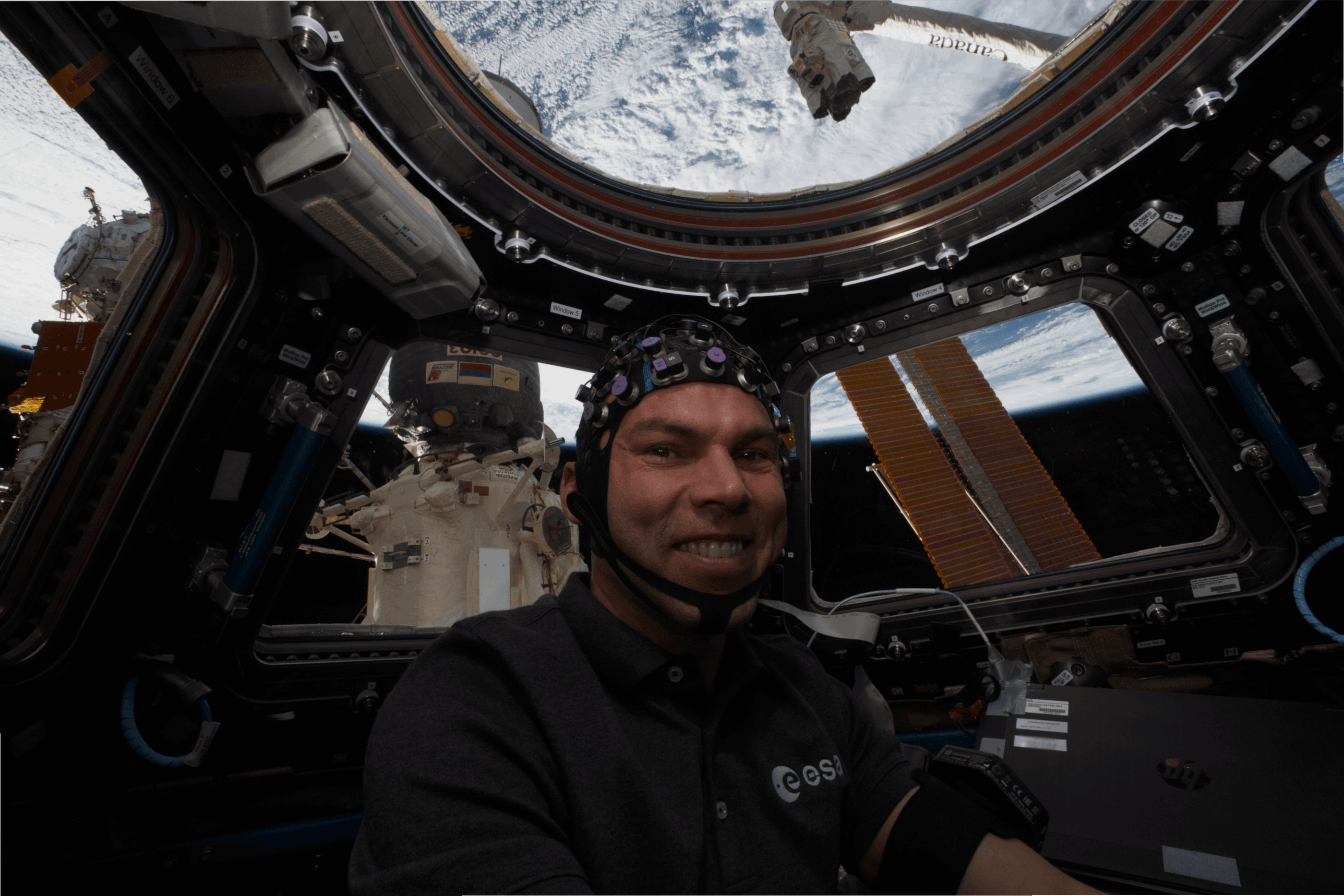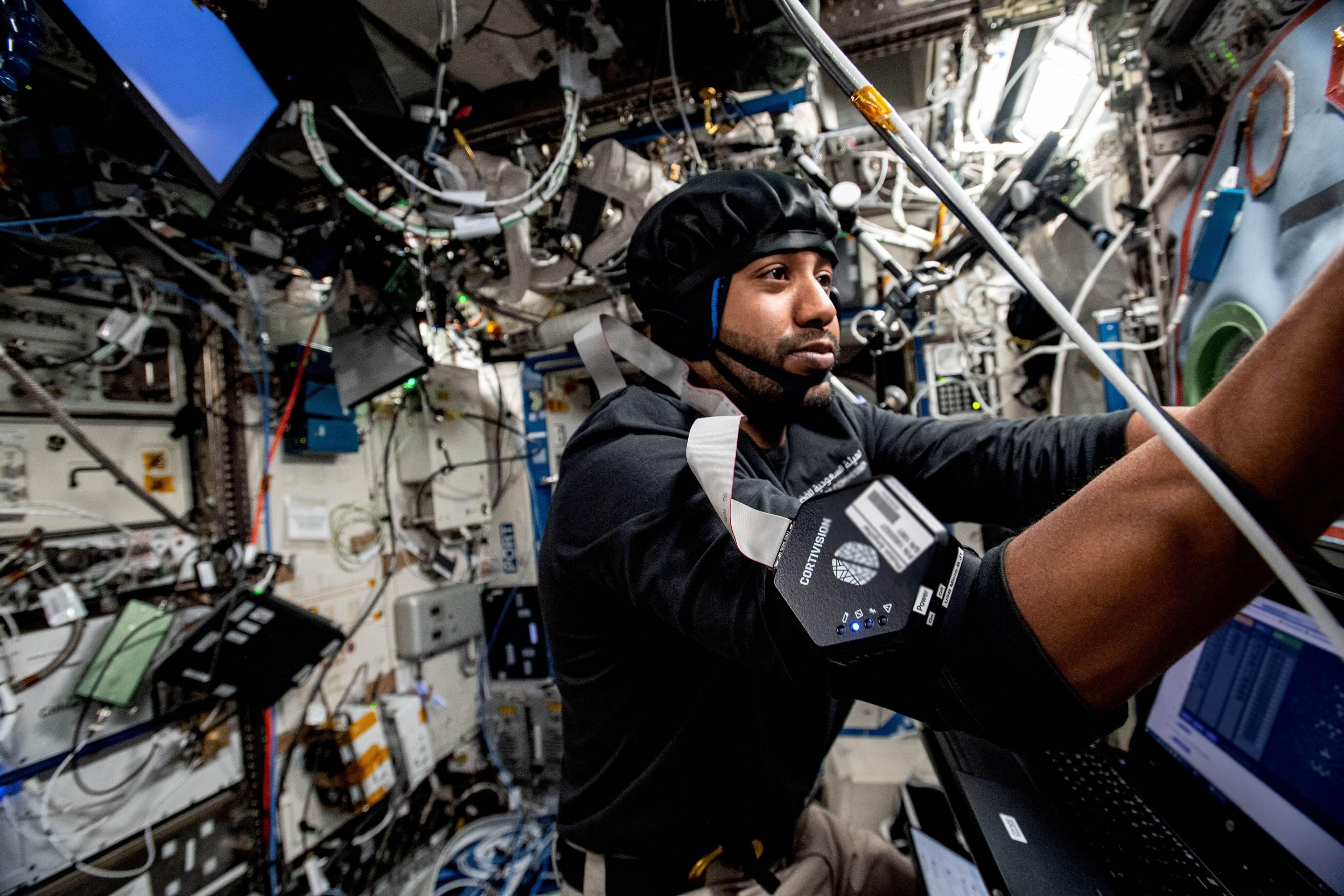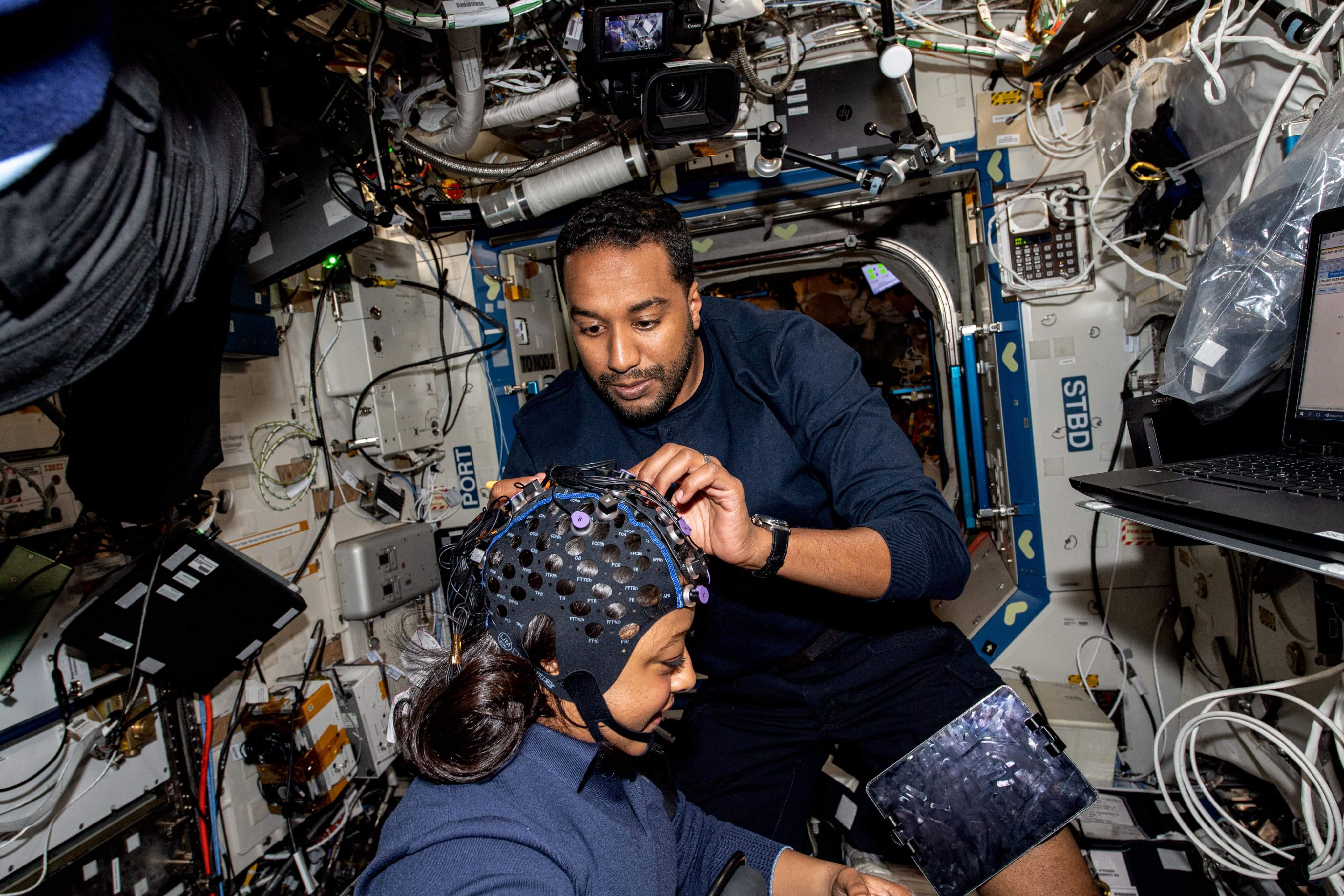

Cortivision’s fNIRS offered proven ease of use, portable design, and valuable insights, contributing significantly to missions' scientific outcomes and introducing new technology to the space industry.

Cortivision pioneered the first fNIRS device on the International Space Station (ISS), marking a breakthrough in portable brain research beyond Earth. Our cutting-edge technology is trusted for its precision and adaptability in extreme conditions. We’re open to innovative collaborations with partners worldwide interested in pushing the boundaries of space and neuroscience research.

Watch astronauts from the Ax-2 mission performing fNIRS research on the ISS!

Watch astronauts from the Ax-2 mission performing fNIRS research on the ISS!

Watch astronauts from the Ax-2 mission performing fNIRS research on the ISS!

Watch astronauts from the Ax-2 mission performing fNIRS research on the ISS!

Watch astronauts from the Ax-2 mission performing fNIRS research on the ISS!

Watch astronauts from the Ax-2 mission performing fNIRS research on the ISS!
Cortivision has been at the forefront of space neurotechnology, using Functional Near-Infrared Spectroscopy (fNIRS) to deepen understanding of how space conditions impact human cognition and brain physiology. Technology used by Cortivision has been successfully implemented across several missions to the International Space Station (ISS), and continues to play a pivotal role in astronaut health monitoring. Here’s a detailed look at the recent advancements and future plans for Cortivision’s space-related projects.
In May 2023, Cortivision’s fNIRS Photon Cap marked a historic moment as the first fNIRS device used in space. Deployed during the AX-2 mission on the ISS, the Photon Cap was utilized in collaboration with the Nebula project, focused on monitoring brain oxygenation and hemoglobin changes in the cerebral cortex. This non-invasive method allowed researchers to track neural activity patterns through changes in oxygenated and deoxygenated hemoglobin concentrations, assessing how spaceflight impacts cognitive and neurological function.
The experiment involved testing astronauts’ brain responses across three phases: pre-mission, in-mission, and post-mission. Before launch, the AX-2 crew conducted experimental tasks to set baseline measurements. Then, during the mission, astronauts repeated these tasks at two time points to measure in-mission changes. Upon returning to Earth, they completed one final assessment to identify any lasting neurological effects. The data collected provides valuable insights into the cognitive and neurological adaptations of the brain in microgravity, with applications that may help optimize performance, manage isolation and stress, and develop countermeasures for long-term missions. Learn more: Axiom Space.
During the Ax-3 mission, Mission Specialist Marcus Wandt utilized Cortivision’s advanced fNIRS headcap to document his stress levels, stress recovery rate, cognitive performance, and general brain activity. This experiment extended the scope of space neurotechnology by monitoring real-time neural activity and providing deeper insights into how microgravity affects stress response and cognitive resilience. The data gathered during AX-3 is integral to understanding how space conditions influence neural adaptability and how they can impact critical decision-making processes, performance, and overall astronaut health during missions. Learn more from our COO Wojciech Broniatowski giving an exclusive interview for the Ax-3 mission update.
Through these findings, Cortivision is contributing to developing strategies to optimize astronauts’ performance and well-being. The application of fNIRS technology for space research allows researchers to study brain function under conditions unique to space, including isolation, confinement, and microgravity, all of which are crucial to preparing for longer missions.
Looking to the future, Cortivision plans to carry out its own dedicated experiment during the Ax-4 mission in 2025 in partnership with ESA. This project will build upon previous research and aims to explore the long-term effects of spaceflight on brain function and cognitive health. As missions grow in duration, understanding neurological resilience and monitoring brain health in space are critical for astronaut safety and effectiveness on extended missions to the Moon, Mars, and beyond.
This Ax-4 study will delve into brain activity patterns in prolonged microgravity and evaluate how sustained space conditions affect cognitive functions over time. The findings are expected to be transformative in developing tailored countermeasures and support systems for astronauts, focusing on areas such as stress management, cognitive load during critical tasks, and mental health in isolated environments. By advancing fNIRS applications in space, Cortivision is paving the way for sustainable human exploration beyond Earth.
Cortivision’s achievements in space neuroscience showcase our commitment to pioneering neurotechnology and expanding the boundaries of human cognition research in space. We are actively seeking partnerships with space agencies, research institutions, and industry collaborators to explore new applications of fNIRS in space. Whether for cognitive monitoring, stress resilience studies, or developing health protocols for deep-space exploration, Cortivision is eager to engage in future collaborations that push the frontiers of space and neuroscience research.
If you’re interested in partnering with Cortivision on groundbreaking space research, please contact us to discuss how we can support your mission objectives and contribute to advancing human performance in space


Cortivision’s fNIRS offered proven ease of use, portable design, and valuable insights, contributing significantly to missions' scientific outcomes and introducing new technology to the space industry.


Cortivision’s fNIRS offered proven ease of use, portable design, and valuable insights, contributing significantly to missions' scientific outcomes and introducing new technology to the space industry.


As the first to use fNIRS technology in space, Cortivision's devices have proven invaluable in expanding our understanding of cerebral physiology in microgravity.


Cortivision’s fNIRS offered proven ease of use, portable design, and valuable insights, contributing significantly to missions' scientific outcomes and introducing new technology to the space industry.


Cortivision’s fNIRS offered proven ease of use, portable design, and valuable insights, contributing significantly to missions' scientific outcomes and introducing new technology to the space industry.


As the first to use fNIRS technology in space, Cortivision's devices have proven invaluable in expanding our understanding of cerebral physiology in microgravity.

